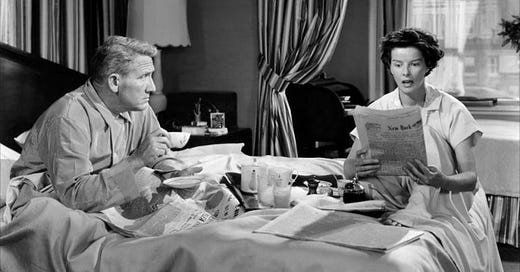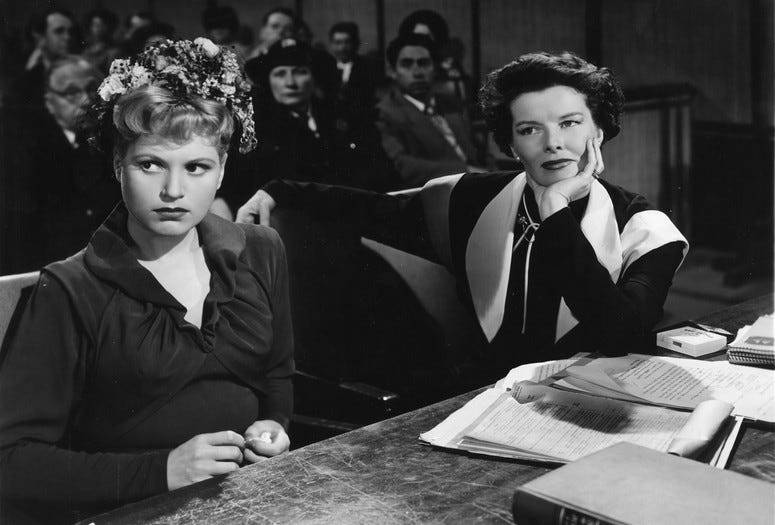Adam’s Rib is a delightfully cheerful and thought-provoking comedy from 1949, directed by George Cukor. It stars the iconic romantic duo of Katharine Hepburn and Spencer Tracy, with Judy Holliday delivering a standout supporting performance.
This was my first Tracy/Hepburn film, and I must say, these two immediately drew me in with their tender and fiery chemistry. Before this, I had primarily seen Hepburn with Cary Grant or James Stewart and was apprehensive about the much-discussed pairing of Tracy and Hepburn. However, it’s truly one of those things you won’t believe until you see it on screen. No one could have portrayed this particular couple better.
I’ve always appreciated progressive themes in old Hollywood movies, and even today, in 2025, people rave about important issues being raised in major motion pictures. This enduring relevance is vital, as there is always more work to be done. In Adam's Rib, Hepburn's character questions why women are treated more harshly in a murder trial than men. She makes an even bolder point: why can only men get away with murder? Why should a woman, having committed the same act, be severely punished?
In the movie, Hepburn and Tracy go through a major miscommunication. Tracy emphasizes that Hepburn is allowing an attempted murder by a woman to go unpunished, while she views it as advocating for equality.
Ultimately, both characters have valid points. However, Tracy is right to insist that no one should be allowed to evade serious consequences, regardless of who they are. Even if it involves the most unserious individuals. Holliday is hilariously entertaining and utterly lost in the character’s peculiar little world. She could easily have portrayed one of the characters from Alice in Wonderland.
The film presents a clash between men and women: husbands versus wives, male murderers versus female murderers. In the end, both genders deserve equal treatment and respect. Adam's Rib successfully balances the fight for women's rights while simultaneously addressing the necessary boundaries that prevent radicalism. Yes, women should be treated the same as men. However, that doesn’t mean they should be pardoned for attempted murder simply because men have historically received similar leniency. As we advocate for justice in one area, we shouldn't overlook injustice in another.






